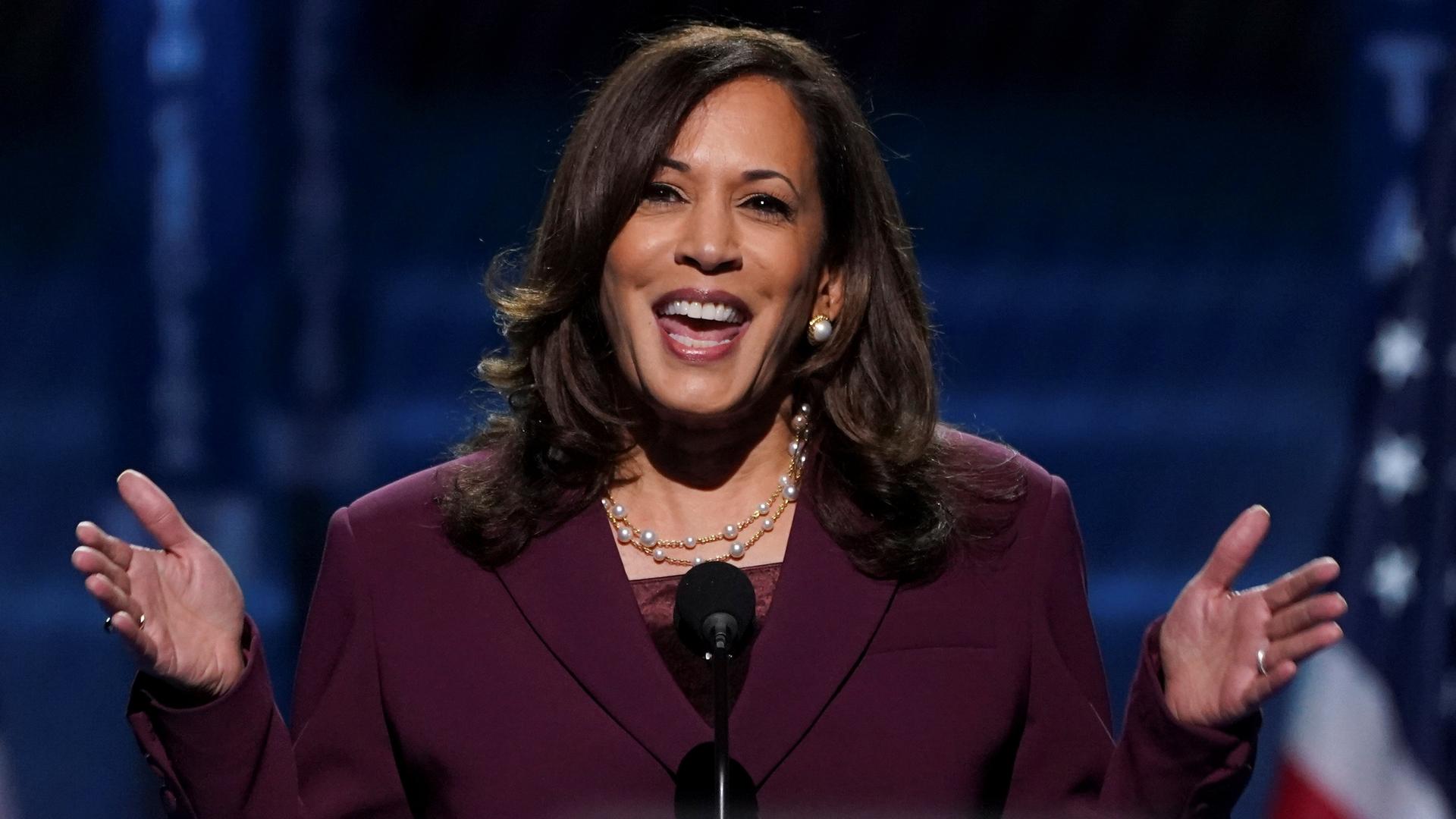Kamala Harris has accepted the Democratic nomination for US vice president, making history as the first Black woman on a major party’s White House ticket, with an appeal for national unity against US President Donald Trump’s deadly “failure of leadership.”
The 55-year-old California senator ran unsuccessfully in the Democratic presidential primary, dropping out months before the first votes were cast.
Joe Biden emerged on top of the once-crowded primary field, clinching the nomination and tapping Harris as his running mate last week.
By joining the party’s ticket, Harris also becomes just the third woman and first Black American to seek the vice presidency. She is a daughter of Jamaican and Indian immigrants.
On the third night of the Democratic National Convention (or DNC), she accused Trump of turning “our tragedies into political weapons” and called on Americans to vote for Joe Biden, “a president who will bring all of us together.”
“Donald Trump’s failure of leadership has cost lives and livelihoods,” she said. “We’re at an inflection point.”
If Biden defeats Trump on November 3, she would likewise become the first female vice president in US history.
READ MORE: How Kamala Harris built her political identity
Obama attacks Trump
Harris closed a night in which some of the most prominent Democrats outlined – in remarkably frank terms – their views of the consequences of a Trump re-election.
America’s first Black president Barack Obama, speaking from Museum of the American Revolution in Philadelphia, warned that American democracy was at risk of faltering.
Hillary Clinton, the party’s 2016 nominee, said lives are at stake in an election being conduct against the backdrop of the coronavirus pandemic.
Obama said that on handing over the White House to Trump in 2017, he thought the Republican “might show some interest in taking the job seriously; that he might come to feel the weight of the office and discover some reverence for the democracy that had been placed in his care.”
“But he never did,” Obama said.
As a result, Trump has left America’s “worst impulses unleashed, our proud reputation around the world badly diminished, and our democratic institutions threatened like never before,” Obama said.
READ MORE: Where does Kamala Harris stand on key foreign policy issues?
Gun violence, climate change discussed
The night focused on the party’s commitment to progressive values on issues like gun violence and climate change while highlighting speakers most likely to connect with women and all people of colour, voters whose energy this fall could ultimately decide the outcome.
Democrats targeted Trump’s policies and personality throughout, casting him as cruel in his treatment of immigrants, disinterested in the nation’s climate crisis, and over his head in virtually all of the nation’s most pressing challenges.
Above all, there was an urgent focus on voting.
Biden faces difficult task
Just 76 days before the election, Biden faces the difficult task of energising each of the disparate factions that make up the modern-day Democratic Party – a coalition that spans generation, race, and ideology.
And this fall voters must deal with concerns over the Covid-19 pandemic that has created health risks for those who want to vote in person.
Biden leads many polls, but his supporters report being motivated far more by antipathy toward Trump than genuine excitement about Biden, a 77-year-old white man who has spent nearly a half-century in politics.
Democrats hope that Harris and Obama in particular can help bridge the divide between those reassured by Biden’s establishment credentials and those craving bolder change.
The pandemic has forced Biden’s team to abandon the traditional convention format in favour of an all-virtual affair that has eliminated much of the pomp and circumstance that typically defines political conventions.
The Democratic convention will build to a finale on Thursday night when Biden will deliver his acceptance speech in a mostly empty convention hall near his Delaware home.










Discussion about this post